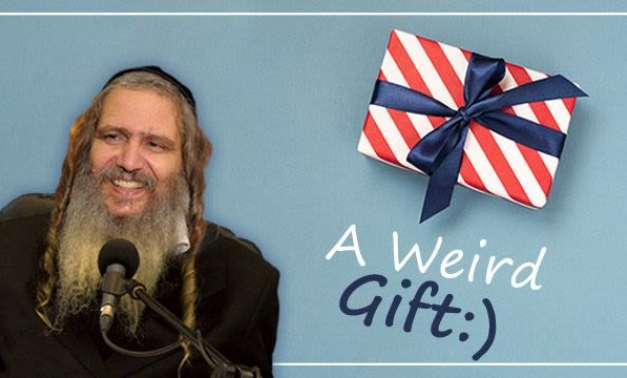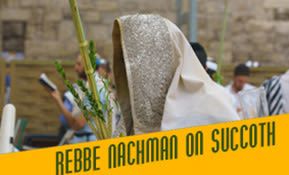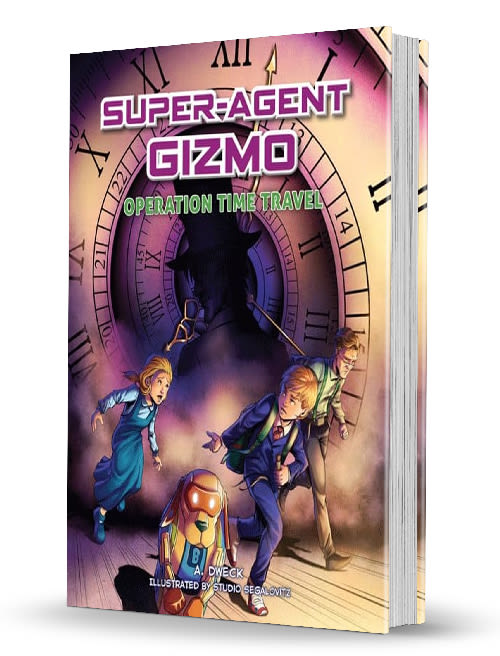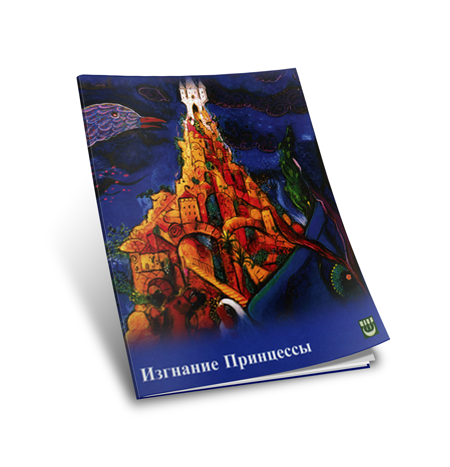
The Power to Drive the World
When we overcome negative influences – or a lack of positive ones - and use our own initiative to serve God, we perfect ourselves and the world...

The verse says, “I have compared you, my beloved, to a mare in the chariots of Pharaoh” (Shir Hashirim 1:9). Why does God compare the Jewish people to a horse pulling a chariot? The answer, according to Rabbi Chaim of Volozhin (Tur, Orach Chaim 46, in the name of the Geonim) is that just as a horse provides the power to drive the chariot, so too, when a Jew makes “an awakening from below,” he provides a power that can animate all the spiritual worlds.
Avraham (Abraham) and Noach
Rashi points out a basic difference between Avraham and Noah. Avraham spoke of God as, “The Lord before whom I walked” (Bereishit 24:40), which shows that Avraham walked, in a sense, ahead of God – he used his power of choice to take the initiative, and then God responded. Regarding Noah, however, the Torah says, “Noach walked together with God” (ibid. 6:9) [Enmesh Achaia, shear 1, chi. 2]. Although Noah always used his power of choice to serve God, he was assisted by “an awakening from above” that was greater than what he earned through his own deeds.
Of Avraham, the verse says, “Who is it that arose from the east…? (Yeshaya 41:2), which can be interpreted as, Who is it that came from a land in the east, and aroused himself and others to recognize the Creator and to serve Him? The Zohar’s comment on the verse says this clearly: “Avraham did not receive any (external) ‘awakening’ (in his search for God). His only ‘awakening’ was ‘from the east’ – from watching the sunrise in the morning (and trying to discover the First Cause of all the phenomena of the world) [Zohar 1:86a]. When God saw that Avraham had a great desire to find Him, He revealed Himself to him, and spoke to him.” Thus Avraham’s entire relationship to God was a result of his “awakening from below”.
The Midrash comments: “’Who arose from the east?’ – this is Avraham, who illuminated the world with his righteousness” (See Bereishit Rabbah, 2:3; Shemot Rabbah, 15:26). Just as the sun rises in the east, appearing out of the darkness of the nighttime sky, so too Avraham brought the knowledge of God to a world that was darkened by the error of idolatry. As a result of his “awakening from below,” Avraham illuminated the entire world.
Prayer and the Power of Choice
We could pose the following question. As we have already said, God gives us a power to choose between good and evil, and our avodah is most precious to Him when we use that power. When we overcome negative influences – or a lack of positive ones – and use our own initiative to serve God, we perfect ourselves and the world, and this is the service for which we receive the greatest reward. If so, how does it make sense for us to ask for God’s assistance in avodat HaShem? It would seem to contradict the entire idea of avodat HaShem, and detract from our reward. Yet there are many prayers in which we ask God for spiritual assistance – that He should draw us closer to Him, to His service, and to His Torah. Even more surprising, there are prayers in which we ask God to help us, or even other individuals, or the entire Jewish people, to do teshuvah. The power to choose if the very basis of avodat HaShem – and yet we seem to be asking God to take it away from us!
One answer is that when a person chooses to do good and avoid evil, he can also choose things that will make it easier for him to choose good in the future. Just as he can decided to live in a religious environment, so too he can pray to God for help from above. But the very fact that he prays to God is already and expression of his power of choice. Hence even when God answers his prayers with “an awakening from above,” it can be regarded as a result of is choice. Not only is the power of prayer not a contradiction to the power of choice, but it actually magnifies and extends it. As a result of the power of prayer, even Divine assistance can be viewed as a consequence of our choices.
What about when we pray for others? The Talmud mentions, for example, that Rabbi Meir prayed for a number of people to do teshuvah, and his prayers were answered (Berachot 10a). Here too, the answer is similar. When a Tzaddik prays for a rasha to do teshuvah, the Tzaddik is exercising his power of choice in order to help another person. Hence, even when God grants his request, it is a response to the Tzaddik’s avodah and his power of choice. Furthermore, in a deep spiritual sense, the entire Jewish people are like a single individual, and from this point of view, the distinction between the one who makes the choice and the one who benefits from it is inconsequential. The important point is that the whole process when seen in its entirety, is the result of an act of avodah and the power of choice, and so it represents “an awakening from below,” and it makes a “dwelling place for God in the lower worlds.” Hence it makes sense for the Tzaddik to pray for others to do teshuvah, and for God to grant his request. (The basic idea of this explanation is found in Hishtapchut HaNefesh section 93, and in Chazon Ish, Orach Chaim, – Moed, Hashmatot, at the end of siman 256, s.v. “Devorim 5:26, Mi yitein.”)
The Need to Awaken Merit
The Torah tells us to appoint judges who “will judge the people with a righteous judgment” (Devarim 16:18). This means, according to the Midrash, that a judge should argue on behalf of the Jewish people before God. Rabbi Yehudah the son of Rabbi Shalom said: “A judge must always present the merits of Israel to God” (Rashi on Bereshit 6:9, s.v. “Es haElokim his’halech Noach.”).
We learn this, the Midrash goes on to explain, from the story of how Gideon was chosen to be a judge. In those days, “The children of Israel did evil in the sight of God, and God delivered them into the hands of Midian for seven years” (Shoftim 6:1). Although the people had sinned and their suffering was the result of a Divine punishment, God sought a leader who would argue on their behalf, and so He sent an angel to Gideon. When the angel told him, “God is with you,” Gideon answered, “Please my Lord, if God is with us, why has all this befallen us? Where are all the wonders our fathers described when they told us that God took us out of Egypt?…” according to Rashi, Gideon argued that the people deserved to be saved in a miraculous way, even if they had sinned. Hearing this, God Himself addressed Gideon and said: “Go with this strength of yours, and save Israel from the hand of Midian…” (Shoftim 6:12-14) [Shoftim 6:13,Rashi s.v. “veyesh Hashem imanu”].
What was God referring to when He said “this strength of yours”? What was the trait that would enable Gideon to save the Jewish people? According to the Midrash, it was his willingness to judge them favorably, to argue on their behalf, and to awaken God’s compassion for them.
We see from this that even though the merits of the Jewish people were known to God, they were not enough. But when Gideon decided to judge the people favorably and “reminded” God of their merits, God also decided to judge them favorably. Gideon’s words made God “change His mind.” Such is the power of “an awakening from below.”
This is something to remember when we want to help another person. The fact that God sees a person’s merits is not enough; we too have to recognize those merits, and to speak about them. There are times when God is waiting for us to judge a person favorably – and after we say he is worthy of God’s blessing, then God will respond accordingly.
To Recognize God Amidst the Darkness
Our world contains a great deal of holiness, although it is hidden from our eyes. This holiness is in a state of “breakage” – far-flung sparks of holiness that are scattered throughout the creation, separated from each other and from God. The realm of holiness in our world is fragmented and incomplete; it waits for us to bring it to a state of repair and perfection. When we recognize God amidst the darkness, when we serve Him amidst the concealment, we repair the breakage in the realm of holiness and rebuild that which was destroyed. Then, as a result of serving God amidst the darkness, in response to our “awakening from below,” we will receive a tremendous light from above.
Rebbe Nachman finds an allusion to this in the verse: “Fortunate are the people who know the teru’ah; they shall walk, O God, by the light of Your Countenance” (Tehillim 89:16). In Hebrew, the verb “to know” (lada’at) connotes unification and connection, as in the verse, “And Adam knew his wife again, and she bore a son…” (Bereishit 4:25). And the word teru’ah connotes a breakage and fragmentation, since it refers to a series of short, staccato blasts on the shofar – a broken sound. Hence the verse, “Fortunate are the people who know the teru’ah…” suggests, “Fortunate are the people who unify and reconnect the disjointed fragments of holiness in the world…” As a result of this avodah, the verse continues, “They shall walk, O’ God, by the light of Your Countenance” – they shall receive a Godly light from above, a light so powerful that it will permeate even the lowest aspects of their lives, even their “walking” and their “feet”. So too in the world as a whole, the Divine Presence will illuminate even the lowest levels (See Likutey Moharan I:35, 10).
Thus we see that the process by which we repair the spirituality of the world depends on our making “an awakening from below.” In a time of darkness, it is up to us to recognize God. The disconnected fragments of holiness will be reunited when we take the initiative. After we take the first step, God will respond with a great light from above, which will be the result of our own initiative. This is very precious to God; indeed, it is the very purpose for which He created the world.
We Still Have Not Forgotten…
“I have strayed like a lost sheep. Search for Your servant, for I have not forgotten Your commandments” (Tehillim 119:176).
Sometimes a person loses his way in the world. He strays so far from God that he no longer knows how to return. He knows that he cannot find his way back without God’s help. But even such a person can make “an awakening from below” – he can call out to God for help. “I can no longer find You,” he can plead with God, “but You can look for me. Search for me. Do not forget me. Call to me with Your voice, and I will answer.” The above verse is the prayer that Dovid Hamelech (King David) uttered on behalf of such a person.
Rebbe Nachman explains the verse as follows. When a sheep strays from the flock, the shepherd can still call it back with his voice, and the animal will return. (That is probably why shepherds often play a flute – so that the sheep will hear the music and return to the flock.) But this will only help as long as the animal still remembers the sound off the shepherd’s voice, or the music of his flute.
Dovid’s prayer to God was as follows: “I have strayed like a lost sheep” – I am very lost, and I no longer know how to return. That is why I plead with You to “search for Your servant” – for You still know how to find me. You can call me to return, and when You do, I will return, “for I have not forgotten Your mitzvot.” I still have not forgotten the voice of the shepherd. I have not forgotten the delight and the sweetness of being close to you. I have not forgotten the joy of fulfilling Your mitzvot. Hence, when I hear Your voice calling me, I will immediately return” (Likutey Moharan I:206).
Dovid Hamelech embodied the verse, “From the ends of the earth I will call to You” (Tehillim 61:3) [see the “Discussions” following Rebbe Nachman’s story, “The Seven Beggars”]. Even when he felt very far from God, he would take the initiative and would call out to God. When God responded with a light from above, it was Dovid who had caused this light with his “awakening from below.” By calling out to God from the darkness, from “the ends of the earth,” Dovid was able to awaken the dawn.
May it be God’s will that the small “awakening from below” that we are capable of making should lead quickly to final Redemption. May it cause God to respond by fulfilling the verse: “Bring us back, O God; cause the light of Your Countenance to shine upon us, and we will be redeemed” (Tehillim 80:4). Both the personal redemption of every individual and the collective redemption of the entire Jewish people depend on the effort we make to serve God with “an awakening from below.”
To be continued…
(Excerpt from The Scent of Gan Eden, by Rabbi Yaakov Meir Shechter, Keren Ohr Publications. Used with author’s permission.)













Tell us what you think!
Thank you for your comment!
It will be published after approval by the Editor.